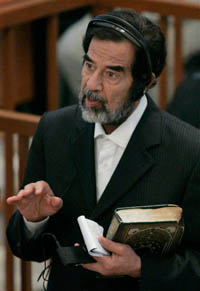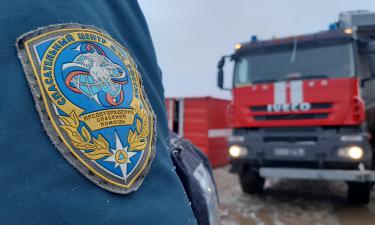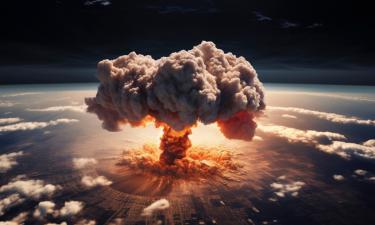Kurdish woman describes surviving chemical attacks
During Saddam Hussein's genocide trial a Kurdish woman described how she and her children struggled to survive the poisonous gas attacks intended to exterminte them.

For a second day, survivors took the stand in the trial, in which Saddam and six co-defendants are charged over the 1987-1988 Anfal campaign, a military sweep against the Kurds of northern Iraq in which tens of thousands of people were killed, AP reports
Adiba Oula Bayez described the Aug. 16, 1987 bombardment of her village of Balisan, saying warplanes dropped bombs that spread a smoke that smelled "like rotten apples."
"Then my daughter Narjis came to me, complaining about pain in her eyes, chest and stomach. When I got close to see what's wrong with her, she threw up all over me," Bayez, a mother of five, said. "When I took her in to wash her face ... all my other children were throwing up."
"Then my condition got bad, too. And that's when we realized that the weapon was poisonous and chemical," she said.
Bayez said the villagers fled to nearby caves on mules, "but the helicopters came and bombed the mountains to prevent the villagers from taking refuge anywhere."
Like many villagers, she was blinded by the gas, she said. In the caves, people were vomiting blood, many had burns. "All I knew was that I was holding tight my five children," she said. "I couldn't see, I couldn't do anything, the only thing I did was scream, 'Don't take my kids away from me."'
The villagers were taken by the military to a prison camp, and Bayez said four people kept in the same room with her died. On the fifth day in jail, she pried open her swollen eyes with her fingers to see, and "I saw my children's' eyes swollen, their skin blackened," she said.
Bayez's account resembled those of two other survivors of the attack on Balisan and the neighboring village of Sheik Wasan who testified Tuesday in the trial.
The survivors are testifying as plaintiffs in the case. Asked by the judges whom she wished to file her complaint against, Bayez exclaimed, "I complain against Saddam Hussein, Ali Hassan al-Majid and everyone in the (defendants') box. May God blind them all."
Saddam and his six co-defendants could face execution by hanging if convicted in the Anfal case. Saddam and his cousin, al-Majid, a Baath Party leader who allegedly organized Anfal, are charged with genocide - considered the toughest charge to prove since its requires showing their intention was to exterminate part of an ethnic group.
Saddam and al-Majid also face charges of crimes against humanity and war crimes, as do their co-defendants, most of whom are former military figures.
Saddam is still waiting a verdict on Oct. 16 in the first case against him - the 9-month-long trial over the killings of 148 Shiites in a 1980s crackdown on the town of Dujail. In that case as well, he and seven other co-defendants could face the death penalty.
Subscribe to Pravda.Ru Telegram channel, Facebook, RSS!





